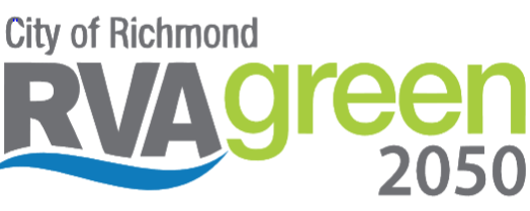
Joint Energy Team
What is JET?
The Joint Energy Team (“JET”) is the governing body for energy management for municipal operations facilitated by the Energy Program Manager. Members include DCAOs, Chiefs, and Department Directors or a designated Department representative(s). The JET was established in FY24 to provide the mechanism needed for all departments to share in the responsibility of energy management and partner in strategic planning for all related initiatives.
One year later, the JET stands at over 100 decision-makers representing all City of Richmond departments, offices, and divisions and is fast-tracking our clean energy future through efficiency measures, culture change, capacity-building, education, and innovation. The Joint Energy Team (“JET”) breaks down departmental silos and fast-tracks sustainability initiatives to advance our clean energy future.
Richmond’s Clean Energy Future
Each year the City of Richmond uses significant amounts of energy in forms such as electricity, natural gas, diesel fuel, and gasoline in the operations of municipal buildings and facilities, services, utility systems, vehicles, and equipment. Annual expenditures for energy exceed $25M per year.
Gains in efficiency and investment in renewable energy can yield significant financial and environmental benefits, and strategic management of these resources enables the cost-effective delivery of City services to the public. Energy management decisions affect all departments.
The Joint Energy Team (“JET”) provides the mechanism needed for all City departments to share in the responsibility of energy management and partner in strategic planning for all initiatives related to buildings, vehicles, and energy.
Relevant Pathways and Strategies:
Transportation and Mobility - TM-1.3
Buildings & Energy - BE-1.1, BE-1.2
FY25 JET Committees & Goals
1. Municipal Energy Assessments Committee
1a. Benchmarking - Energy benchmarking standards will be established for all city-owned building
1b. Submetering - Implement energy submetering pilot project at all City buildings
1c. Asset Management - Apply naming conventions across all CMMS (Computerized Maintenance Management Systems) & migrate under 1 centralized system
2. Electric Vehicle Transition Committee
2a. Fuel Tracking - Implement and maintain a regular Fleet Fuel Consumption Report
2b. EV Charging - Enter the City into a holistic contract for EV chargers
2c. EV Policy - Create a centralized EV Charging Policy for City fleet vehicles and charging
3. Energy Conservation & Education Committee
3a. Conservation Policy - Adopt an Energy Conservation Policy for City buildings
3b. Communications - Develop interdepartmental energy education & communications, materials, and programs
3c. Training - Develop HR training for energy conservation for all City employees
3d. Policy Accountability - Determine accountability, responsibility and enforcement of energy conservation
3e. Policy Integration - Integrate energy conservation requirements into CIP projects
4. Smart Infrastructure Committee
4a. Stakeholder Engagement Plan - Develop a public outreach & engagement plan for smart infrastructure projects
4b. Smart Governance Policy - Establish a governance policy for Smart City Initiatives
4c. Outdoor Lighting - Determine costs for converting pedestrian lights to LED
4d. Outdoor Lighting - Develop plan for LED conversion of lights in city-owned parking lots
5. Renewable Energy Planning Committee
5a. Solar Feasibility - Conduct a solar feasibility study
5b. Renewable Tech Pilot Projects - Consider alternative clean energy solutions
5c. Project Funding - Evaluate new grant opportunities for solar installations and other clean energy solutions
5d. Renewable Energy Credits - Meet the City's commitment of 100% renewable electricity by the end of 2025
Resources
Joint Energy Team FY24 Administrative Update Report - Download here
Joint Energy Team Summary - Download here








